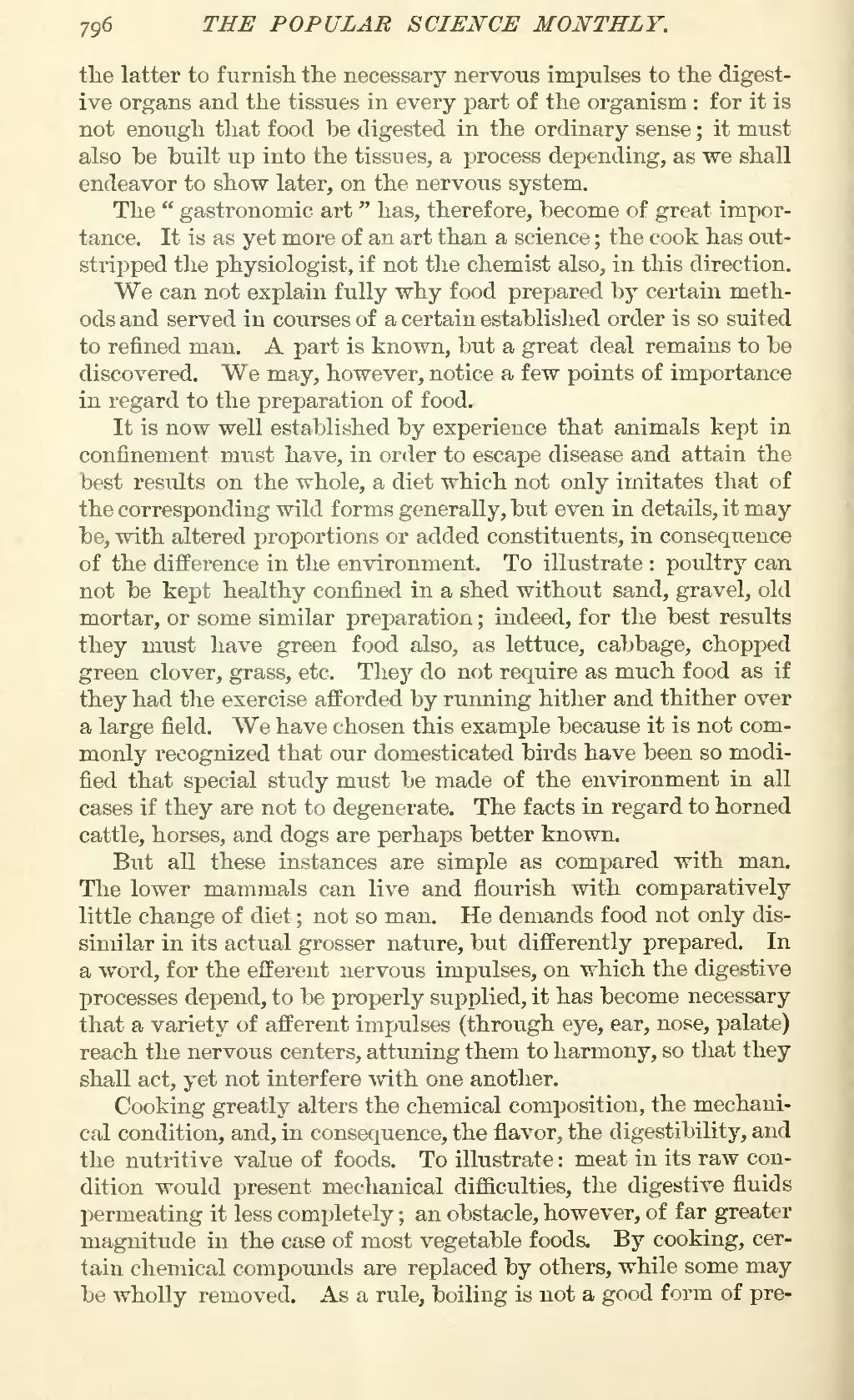the latter to furnish the necessary nervous impulses to the digestive organs and the tissues in every part of the organism: for it is not enough that food be digested in the ordinary sense; it must also he built up into the tissues, a process depending, as we shall endeavor to show later, on the nervous system.
The "gastronomic art" has, therefore, become of great importance. It is as yet more of an art than a science; the cook has outstripped the physiologist, if not the chemist also, in this direction.
We can not explain fully why food prepared by certain methods and served in courses of a certain established order is so suited to refined man, A part is known, but a great deal remains to be discovered. We may, however, notice a few points of importance in regard to the preparation of food.
It is now well established by experience that animals kept in confinement must have, in order to escape disease and attain the best results on the whole, a diet which not only imitates that of the corresponding wild forms generally, but even in details, it may be, with altered proportions or added constituents, in consequence of the difference in the environment. To illustrate: poultry can not be kept healthy confined in a shed without sand, gravel, old mortar, or some similar preparation; indeed, for the best results they must have green food also, as lettuce, cabbage, chopped green clover, grass, etc. They do not require as much food as if they had the exercise afforded by running hither and thither over a large field. We have chosen this example because it is not commonly recognized that our domesticated birds have been so modified that special study must be made of the environment in all cases if they are not to degenerate. The facts in regard to horned cattle, horses, and dogs are perhaps better known.
But all these instances are simple as compared with man. The lower mammals can live and flourish with comparatively little change of diet; not so man. He demands food not only dissimilar in its actual grosser nature, but differently prepared. In a word, for the efferent nervous impulses, on which the digestive processes depend, to be properly supplied, it has become necessary that a variety of afferent impulses (through eye, ear, nose, palate) reach the nervous centers, attuning them to harmony, so that they shall act, yet not interfere with one another.
Cooking greatly alters the chemical composition, the mechanical condition, and, in consequence, the flavor, the digestibility, and the nutritive value of foods. To illustrate: meat in its raw condition would present mechanical difficulties, the digestive fluids permeating it less completely; an obstacle, however, of far greater magnitude in the case of most vegetable foods. By cooking, certain chemical compounds are replaced by others, while some may be wholly removed. As a rule, boiling is not a good form of pre-

